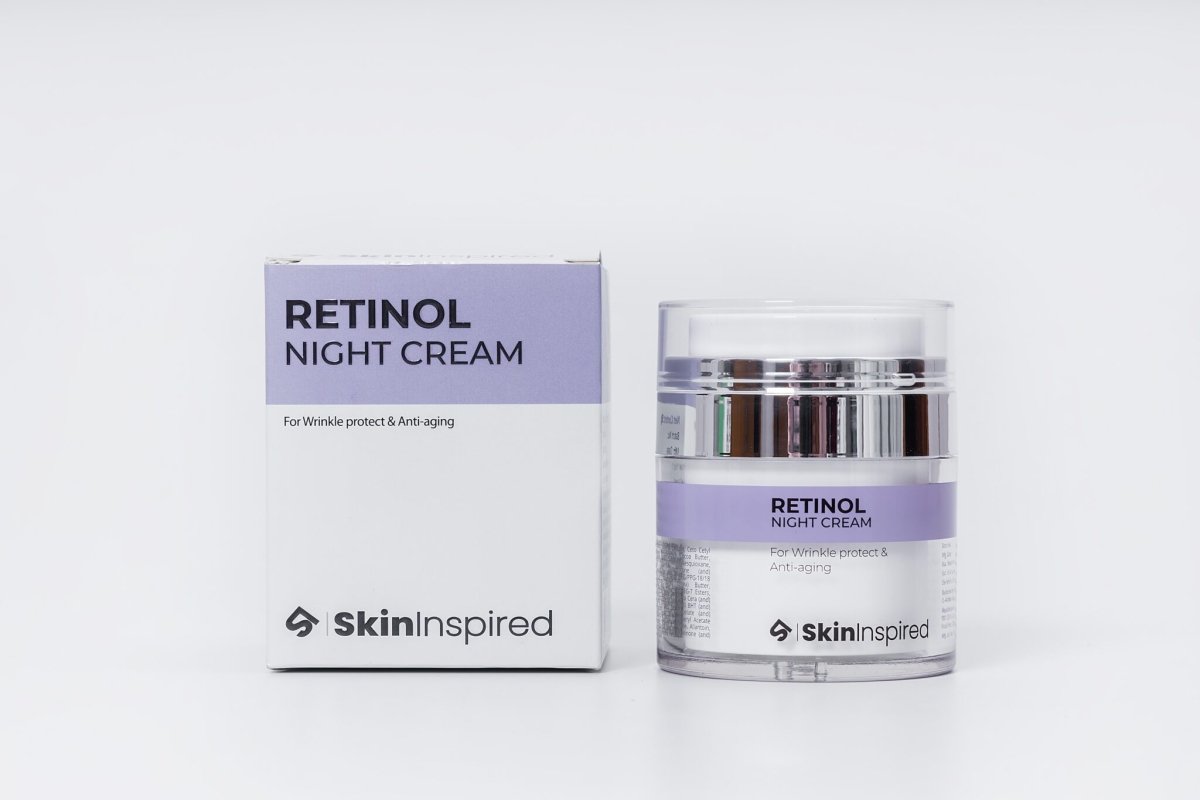If you’re searching for a powerful skincare ingredient that targets multiple skin concerns, including aging, acne, and uneven skin tone, retinol is the answer. As a derivative of vitamin A, retinol has been widely celebrated in dermatology for its ability to boost collagen production, accelerate cell turnover, and refine skin texture.
In this comprehensive guide, we’ll explore everything you need to know about retinol night cream, including its benefits, how to use it correctly, potential side effects, and expert recommendations. Whether you're a beginner or looking to enhance your skincare routine, this article will help you make the most of this skincare powerhouse.
What is Retinol?
Retinol is a type of retinoid, which is a class of compounds derived from vitamin A. It is one of the most effective and well-researched skincare ingredients, commonly found in anti-aging and acne-fighting products. Once applied, retinol is converted into retinoic acid, the active form that works on the skin to deliver its benefits.
Retinol is available in various strengths and formulations, including over-the-counter creams, serums, and prescription-based treatments. It’s crucial to choose the right type based on your skin’s needs and tolerance.
Benefits of Retinol Night Cream
Retinol offers numerous benefits for the skin, making it a must-have in your nightly skincare routine. Below are some of the key advantages:
-
Reduces the Appearance of Fine Lines and Wrinkles
One of retinol’s most praised benefits is its anti-aging properties. By stimulating collagen production, retinol helps to plump the skin, reducing the appearance of fine lines and wrinkles over time. With consistent use, your skin will appear firmer, smoother, and more youthful. -
Improves Skin Texture and Tone
Uneven skin tone, rough patches, and dull skin can all be improved with retinol. By increasing cell turnover, it removes dead skin cells and encourages the growth of fresh, new skin. This results in a more radiant and even complexion. -
3. Fights Acne and Prevents Breakouts
Retinol is a game-changer for acne-prone skin. It works by unclogging pores, reducing oil production, and minimizing inflammation. This not only treats existing acne but also prevents future breakouts, leading to clearer skin over time. -
Brightens and Reduces Hyperpigmentation
Dark spots, sun damage, and post-acne marks can make skin look uneven and aged. Retinol helps to fade these imperfections by accelerating skin renewal. It’s an effective solution for those dealing with melasma, age spots, and sun-induced hyperpigmentation. -
Minimizes Pore Size
Enlarged pores can make the skin appear rough and oily. Retinol helps to refine pores by improving skin elasticity and reducing excess oil production. This results in smoother skin with a more polished look. -
Provides Antioxidant Protection
Retinol possesses antioxidant properties that help to neutralize free radicals. These unstable molecules contribute to premature aging and skin damage. By using retinol regularly, you can help protect your skin from environmental stressors. -
Enhances the Effectiveness of Other Skincare Products
Since retinol promotes cell turnover, it allows other skincare ingredients to penetrate deeper into the skin. This enhances the efficacy of products like moisturizers, serums, and brightening treatments.
How to Incorporate Retinol into Your Skincare Routine
Using retinol correctly is crucial to avoid irritation and maximize its benefits. Here’s a step-by-step guide:
Step 1: Start with a Low Concentration
If you’re new to retinol, begin with a low concentration (0.1% to 0.3%) to help your skin adjust. Gradually increase the strength as your tolerance builds.
Step 2: Apply at Night
Retinol is best used in your nighttime routine since it can make your skin more sensitive to sunlight. Always pair it with sunscreen during the day.
Step 3: Use a Pea-Sized Amount
A little goes a long way! Apply a small amount to clean, dry skin. Avoid the eye area and corners of the mouth, as these are more sensitive.
Step 4: Gradually Increase Usage
Start by using retinol 1-2 times a week, then slowly increase the frequency as your skin builds tolerance. Overuse can lead to irritation, redness, and peeling.
Step 5: Always Use Sunscreen
Since retinol increases sun sensitivity, apply a broad-spectrum sunscreen (SPF 50) every morning to prevent UV damage.
Potential Side Effects and How to Avoid Them
While retinol offers remarkable benefits, it can also cause irritation, especially for beginners. Here are some common side effects and tips to manage them:
1. Dryness and Peeling
- Use a hydrating moisturizer
- Reduce the frequency of application if irritation occurs
- Avoid combining retinol with other strong actives like AHAs and BHAs
2. Redness and Irritation
- Apply a barrier-repairing moisturizer
- Introduce retinol gradually to prevent excessive irritation
3. Increased Sun Sensitivity
- Never skip sunscreen
- Limit direct sun exposure
Choosing the Right Retinol for Different Skin Types
Selecting the right retinol product is essential to achieve the best results while minimizing irritation. Here’s a general guide based on different skin types:
1. For Beginners:
- Opt for a low-concentration retinol (0.1% to 0.3%) to allow your skin to adjust gradually.
- Look for formulations with hydrating ingredients like hyaluronic acid and ceramides to prevent dryness.
2. For Sensitive Skin:
- Choose a gentle, slow-release retinol formula that reduces the risk of irritation.
- Look for retinol combined with soothing ingredients like niacinamide, peptides, or allantoin.
3. For Oily/Acne-Prone Skin:
- A lightweight, gel-based retinol can help regulate oil production and reduce breakouts.
- Retinol combined with anti-inflammatory ingredients like green tea extract or salicylic acid can help keep acne at bay.
4. For Advanced Users:
- If your skin is already accustomed to retinol, you can opt for higher concentrations (1% to 2%) of retinol serum for enhanced benefits.
- Consider formulas that include antioxidants and skin-repairing ingredients for maximum anti-aging effects.
Conclusion
Retinol is one of the most effective ingredients for improving skin health. By incorporating a retinol night cream into your skincare routine, you can experience smoother, brighter, and more youthful-looking skin. Remember to start slow, stay consistent, and always use sunscreen during the day.


